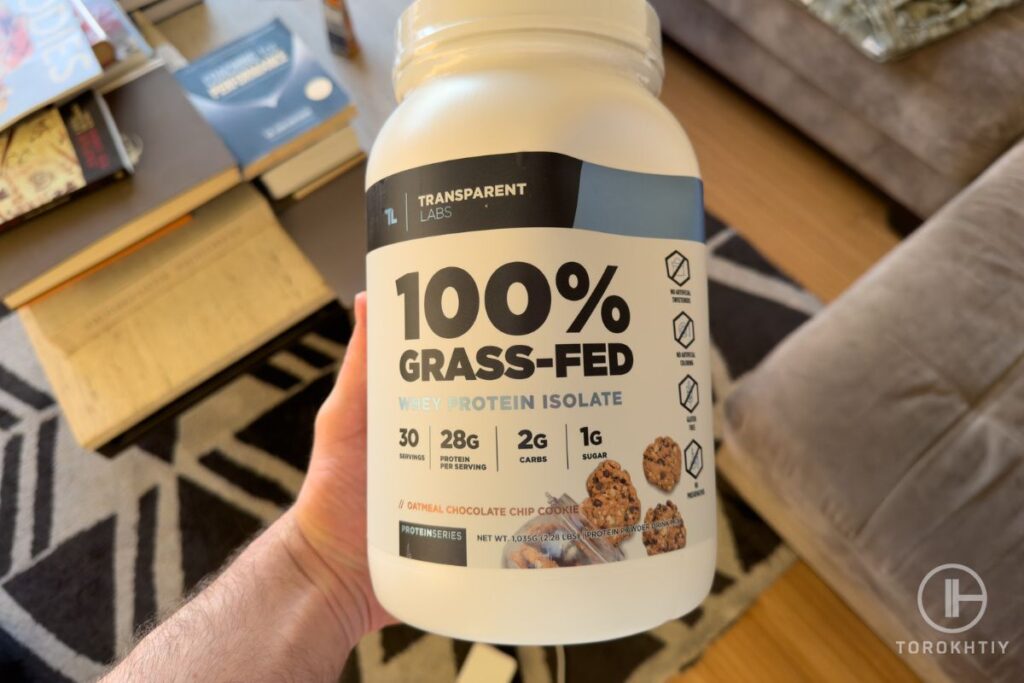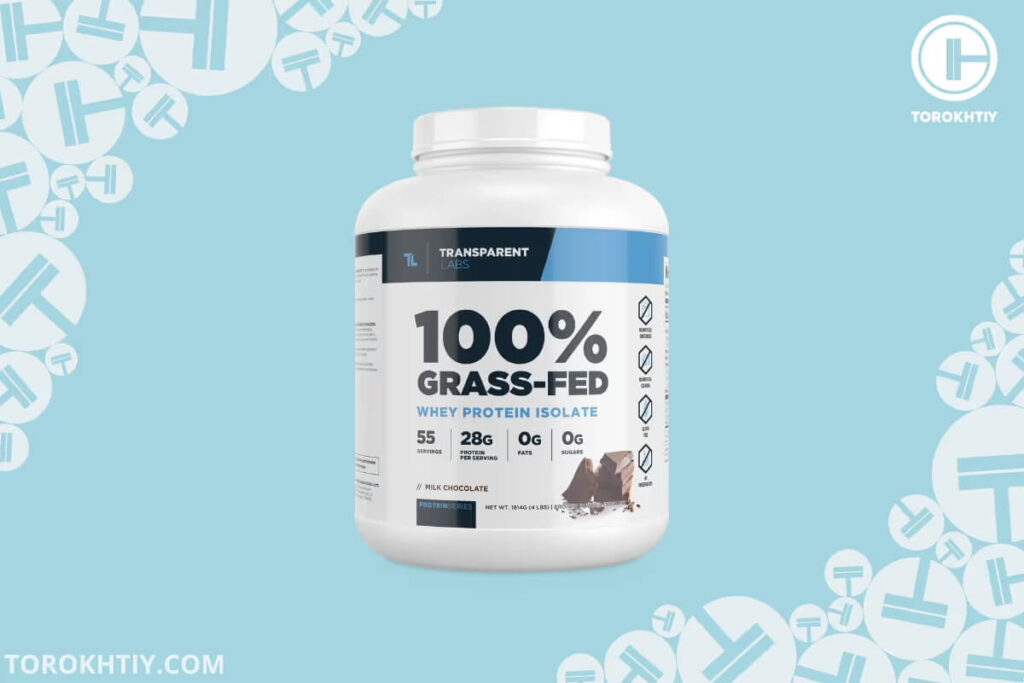Does Protein Make You Poop? Causes & Solutions
Author:
Unlock your full potential by engaging with our experts and community! Have questions about your fitness journey or looking for expert advice on weightlifting techniques? Don’t hesitate — leave a comment below and David Sasha Schulz will provide a personalized answer and insights to help you reach your goals.
Torokhtiy is reader-supported. Some links are affiliate links, and we may earn a commission at no extra cost to you. See our disclosure page for details.
Does protein make you poop? If you’ve been taking protein powder for a while, you may have noticed the unfortunate side effect that protein will make you need to use the bathroom more than you would like.
Luckily, this is a common problem and there’s several things that can be done to address it. So, why does protein make you poop? Keep reading to find out, and how you can fix this problem.
Does protein make you poop? Protein powder will likely only cause notable digestive issues if someone is lactose intolerant or has IBS. This will likely only be an issue for those who can’t handle lactose in their diet, making plant-based proteins and whey isolates a great alternative.

Does Protein Make You Poop?
While the vast majority of people have no problem digesting protein powder, some people will notice significant digestive issues when taking this common supplement. It’s not uncommon for people to experience gas, bloating, and diarrhea after consuming protein. For most people, however, this will not be a major issue.
With this being said, do protein shakes make you poop more than you would like? Keep reading to find out why this may be an issue.
Digestive issues with protein powder most commonly arise when someone is lactose intolerant and is still consuming dairy-based protein powders. Lactose intolerance is very common, with approximately 65-70% of the world’s population experiencing this condition.
This condition is caused by the body not producing enough lactase, the enzyme that digests lactose. You can likely determine if you’re lactose intolerant based on how your body reacts when you consume dairy-based products.
Any digestive issues, or diarrhea, are a likely sign that you’re lactose intolerant. If you’re unsure, check with your doctor to get tested.
Another reason protein powders may make you poop is that you have IBS (Irritable Bowel Syndrome). Whenever you eat, you initiate something called the gastrocolic reflex, where the gastrointestinal tract is stimulated by the food you’re eating. People with IBS appear to have a much stronger colonic response when the gastrocolic reflex is activated.
This leads to them needing to defecate almost immediately after eating. It is also usually accompanied by other symptoms including gas and stomach pain. If you find that you’re pooping right after protein shakes, or any other food for that matter, this may be a sign you’re suffering from IBS.
Again, if you believe you have IBS, please get in contact with your doctor to discuss potential treatments.
Overall, protein powders are most likely to cause stomach discomfort in people due to lactose intolerance or IBS. If you suffer from either of these conditions, then there are several things you can do to address the issue, and ideally have less digestive issues whenever you take protein.
These solutions are covered more in-depth in the section below.

The Real Problem Is Diarrhea, So What Can Be Done About It?
Now, whether you are lactose intolerant, have IBS, or just experience general discomfort when you eat protein powder, then you may be wondering what you can do to alleviate these digestive issues.
One of the major issues people experience is diarrhea, so here are a few tips we have to alleviate this issue between your protein shakes and bowel movements. If protein powder makes you poop, keep reading to find out how to solve this problem.
1. Mix With Water Instead Of Milk
If you are lactose intolerant, the issues you’re experiencing from protein powder may largely come down to what you’re mixing it with. If you’re mixing a scoop of protein with 1-2 cups of milk, the extra lactose from the milk may be what’s causing an upset stomach more than the protein.
It’s entirely possible that you’d be able to digest the protein fine with water, but having the milk is what’s causing digestive issues.
Before immediately switching protein, try mixing the supplement with either water or a plant-based milk instead. You may notice a significant difference in how it makes you feel from this one simple change! If there isn’t a difference, at least then you know the protein is probably the problem.
2. Replace Protein Source
Of course, your next course of action if you’re taking a whey concentrate or casein protein would be to replace the type of protein you’re consuming. First, you could try switching to a whey isolate as they have less lactose than whey and casein. However, if discomfort persists, then you can consider switching to a non-dairy protein instead.
Now, especially if you’re lactose intolerant, you may be wondering why we’re recommending a whey isolate. Isolates are a much more refined source of protein compared to concentrates.
While concentrates typically have around a 80% protein concentration, isolates are typically closer to 90%. This means much of the lactose from whey is removed, and these supplements are often suitable for lactose intolerant individuals.
Of course, an even better option if you’re especially sensitive to lactose would be to switch to a non-dairy protein. This could be a plant-based, egg-white, or beef protein powder.
While you can be confident that there will be no lactose whatsoever in these supplements, keep in mind that they will usually have lower bioavailability, different texture, and potentially less protein per serving when compared to a whey isolate.

3. Switch Protein Brand
Now, even if you’ve already switched to a whey isolate or plant-based protein, you may still be experiencing some discomfort. Ultimately, it may come down to certain ingredients found in protein powders instead of the protein itself.
Ingredients like sugar alcohols, stevia, and monk fruit have all been shown to cause bloating, gas, and diarrhea in some people. Also, certain people are especially sensitive to food additives like thickeners and emulsifiers, which may cause unpleasant symptoms as well.
So, we recommend checking the ingredient list on whatever protein you’re currently using. If you see a long list of extra ingredients – namely sweeteners and additives – these may be the culprit behind your digestive issues. In this case, we recommend switching to a protein brand with as few ingredients as possible.
4. Best Protein – Transparent Labs Grass-Fed Whey Isolate
If you’re experiencing digestive issues from protein, one of the main issues may be that you’re using a concentrate instead of an isolate. Switching to a high-quality isolate may make a difference because it has a significantly lower lactose content.
Let’s see why Transparent Labs Grass-Fed Whey Isolate is a great choice for those experiencing stomach discomfort, as well as just being a great protein overall.
With this product containing 28g of protein in each 120 calorie serving, it has a concentration of 93% protein by calories. With whey isolates having significantly less lactose than an average concentrate, this would be a great option for lactose intolerant people who still want to use a whey supplement.

This is also made with 100% grass-fed dairy, which is largely considered healthier than inorganic dairy. While this protein is made with all-natural ingredients containing no major additives, the inclusion of stevia may cause some stomach discomfort for some. If you know you’re sensitive to stevia, this may not be the best option for you.
Also, it’s worth noting that this is a fairly expensive protein supplement, especially when compared to concentrates. Each serving of Transparent Labs’ whey isolate will cost you around $1.81. While this is somewhat pricey, you’ll be hard-pressed to find a higher-quality protein supplement anywhere else.
FAQ
Does Protein Make You Poop Or Constipated?
Protein will likely only cause major digestive issues if you’re lactose intolerant, or if you have IBS. On average, it’s more common that protein causes diarrhea or frequent bowel movements instead of making people constipated.
However, if you’re consuming high amounts of protein with minimal fiber in your diet, you may experience constipation. In this scenario, keep in mind that this isn’t because of protein powder alone, but your dietary pattern as a whole.
Can Protein Give You Diarrhea?
Yes, as mentioned above, protein will likely cause diarrhea in those who are lactose intolerant, or those who have IBS. Protein powder causing these symptoms is a likely sign that you have one of these conditions. We recommend getting in touch with your doctor if you have any concerns about your digestive health.
What Happens If You Eat Too Much Protein At Once?
Eating too much protein at once will likely cause some serious stomach upset, even in people with completely healthy digestive systems. Some symptoms may include gas, bloating, or diarrhea. However, once the protein is fully digested, there likely won’t be any ongoing issues.
Does Protein Help You Poop?
While protein is not commonly seen as a laxative, you may be wondering, does eating more protein make you poop more? While liquid protein shakes shouldn’t make you poop unless you’re lactose intolerant or have IBS, eating a high-calorie diet full of protein rich foods will naturally make you poop more.
Conclusion
Overall, while protein may cause mild digestive issues for some people, those with IBS, and those who are lactose intolerant will most likely need to avoid dairy-based protein shakes. To avoid some of the digestive issues related to protein powder, we recommend drinking it with water, switching protein sources, or switching protein brands. Of course, consult with your doctor if these issues persist.
For a great whey isolate supplement that we believe will be good for most people with digestive issues, we recommend Transparent Labs Grass-Fed Whey Isolate.
Do you experience any digestive issues when you drink protein? Have any solutions not covered in this article? Let us know in the comments below!
Also read:
- Whey vs Plant Protein
- Casein vs Whey Protein
- Is Whey or Soy Protein Better
- How Many Protein Shakes a Day
- Can You Drink Protein Shakes Without Working Out
- Can You Mix Creatine With Protein Powder
References:
- Lauren Matheu, “Do I need to use protein powders?” Colostate, https://www.chhs.colostate.edu/krnc/monthly-blog/do-i-need-to-use-protein-powders/, JUNE 2022
- Theodore M Bayless, “Lactase Non-persistence and Lactose Intolerance” NCBI, https://pubmed.ncbi.nlm.nih.gov/28421381/, 2017 May
- Jordan C. Malone, “Physiology, Gastrocolic Reflex” NCBI, https://www.ncbi.nlm.nih.gov/books/NBK549888/, MAY 1, 2023
- “The Rundown on Protein Powders” GSU, https://recreation.gsu.edu/2023/03/31/the-rundown-on-protein-powders/, MARCH 31, 2023
- Mayo Clinic Staff, “Nutrition and healthy eating” Mayoclinic, https://www.mayoclinic.org/healthy-lifestyle/nutrition-and-healthy-eating/in-depth/artificial-sweeteners/art-20046936
- “Food additives” Betterhealth
- “Grass-fed cows produce healthier milk” UMN, https://www.betterhealth.vic.gov.au/health/conditionsandtreatments/food-additives
Why Trust Us?
With over 20 years in Olympic weightlifting, strength training, nutrition coaching, and general fitness our team does its best to provide the audience with ultimate support and meet the needs and requirements of advanced athletes and professional lifters, as well as people who strive to open new opportunities and develop their physical capabilities with us.
By trusting the recommendations of our certified experts in coaching, nutrition, and sports training programming, as well as scientific consultants, and physiotherapists, we provide you with thorough, well-considered, and scientifically proven content. All the information given in the articles concerning workout programming, separate exercises, and athletic performance, in general, is based on verified data.
The product testing process is described in more detail here.
Author: David Sasha Schulz
Doctor of Chiropractic, BSc Human Biology, CSCS
Strength coach (CSCS) – 10 years
Sasha is a Chiropractor and Kinesiologist practicing in Kelowna, BC, Canada. He has been practicing Chiropractic since 2019, integrating manual therapy, strength training and programming principles, and nutritional strategies to get his patients optimal results. He currently scratches the competitive itch in fitness, and the occasional endurance race, and plays golf and snowboards for fun. He has an interest in all strength and fitness-related sports.




Still have questions after reading our article? Unlock your full potential by engaging with our experts and community! Don’t hesitate — leave a comment below and David Sasha Schulz will provide a personalized answer and insights to help you reach your goals.